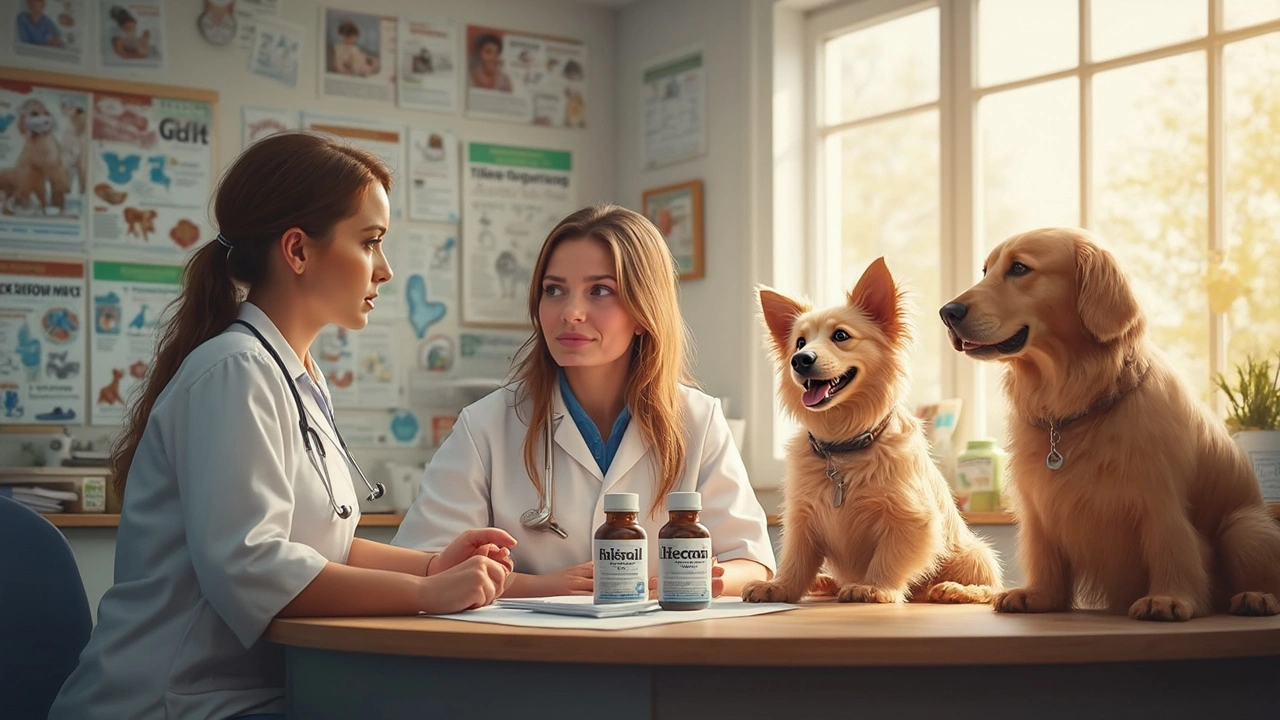Keeping a pet healthy is mostly about steady, small steps: good food, up-to-date vaccines, regular checkups, and safe use of medications. If you own a dog, cat, rabbit, or another companion animal, this page collects down-to-earth tips to help you avoid common mistakes and handle everyday problems without stress.
Never give human medicines to pets unless a vet tells you to. Dosing rules are different and some drugs that are safe for people can be dangerous for animals. If you need medication, get a written prescription and stick to it.
Shopping online for pet meds can save money, but it comes with risks. Use pharmacies that require a prescription, show a physical address, and have clear contact details. Avoid sites that offer controlled drugs without any vet sign-off. When in doubt, call your vet first — a quick check can prevent big problems.
Read labels closely. Check the active ingredient, strength, and dosing instructions. If a label is unclear, don’t guess — contact the seller or your veterinarian. For topical products (flea, tick, scabies treatments), make sure the product is meant for your species and weight class; wrong products can harm small pets.
Prevention beats emergency visits. Keep up with flea/tick control, heartworm prevention for dogs where needed, and annual parasite checks. Vaccines protect against common diseases — follow the schedule your vet recommends for your pet’s age and lifestyle.
Supplements can help in some cases — joint support, probiotics, or skin-care formulas. Pick products with clear ingredient lists and dosing for your pet’s species and size. Talk to your vet before starting any supplement, especially if your pet takes other medicine. Some supplements interact with drugs or can cause side effects.
Watch the signs: sudden vomiting, difficulty breathing, severe diarrhea, collapse, uncontrolled bleeding, or seizures need immediate vet care. For milder issues — a limp, mild cough, or small wound — call your vet for advice before giving any drug yourself.
Keep a pet-safe first-aid kit: bandages, digital thermometer, saline wipes, and your vet’s emergency number. Store all medicines out of reach. Many common household items (chocolate, xylitol, some plants, and human painkillers) are toxic to pets.
If you want to learn more about specific drugs and alternatives, check our guides on parasite treatments, antibiotic options, and safe online pharmacies. We break down what to ask your vet, how to read product labels, and how to spot unreliable sellers. Small choices every week add up to a healthier pet — and fewer trips to the emergency room.

Cabergoline is making waves in veterinary clinics, especially for its key role in breeding and hormone management. This article digs into how vets use cabergoline for dogs and other animals, the science behind it, and why it’s sometimes picked over other drugs. You’ll learn about its main uses, possible side effects, and tips to keep animals safe. Whether you’re a breeder, pet owner, or just curious, this guide unpacks real-world advice and the latest facts. No confusing jargon, just clear practical info.
